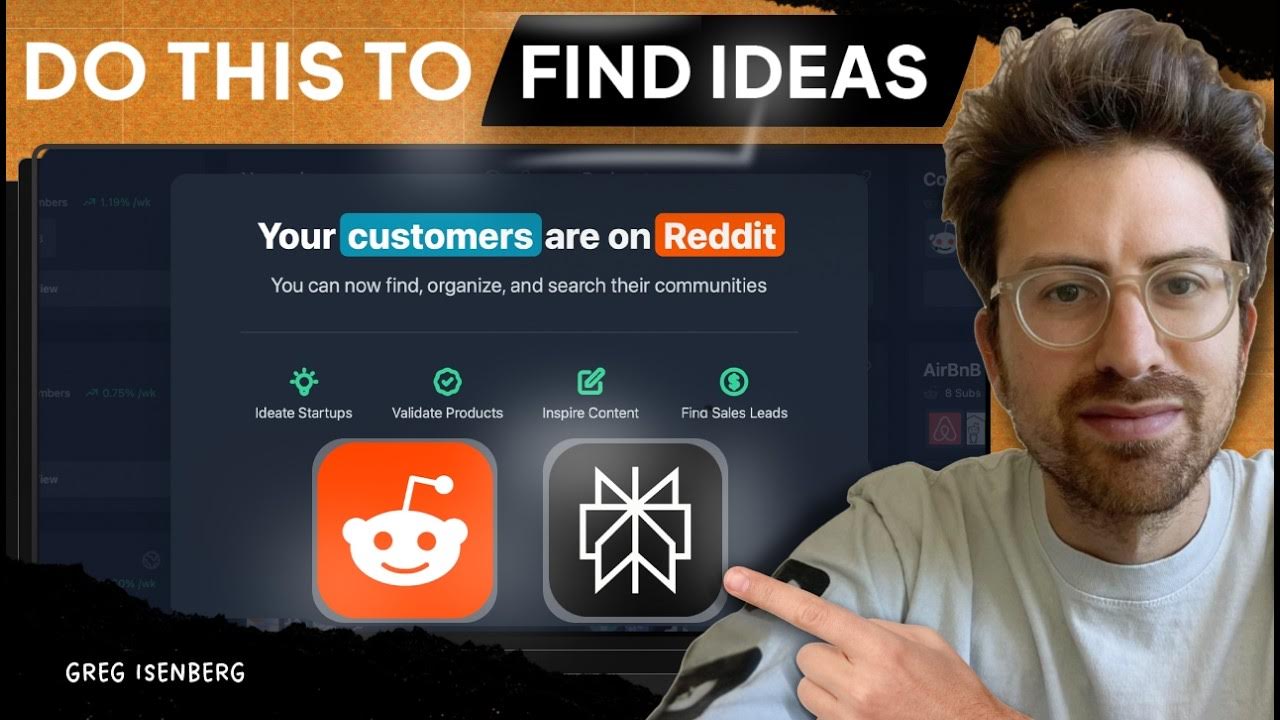How to Get and Evaluate Startup Ideas | Startup School
Summary
TLDRThis video provides advice on coming up with good startup ideas. It discusses common mistakes founders make like not solving real user problems or getting stuck on overdone ideas. It provides a 10-question framework to evaluate startup ideas on criteria like market size, competition, and founder expertise. It then details 7 recipes for generating startup ideas, like building on your team's strengths, identifying recently emerged needs, and talking to industry experts. It emphasizes that often the best test of an idea is to simply try it rather than over-analyzing. The key is avoiding common pitfalls and iteratively developing an idea suited to yourunique capabilities.
Takeaways
- 😀 The most common mistake founders make is building something that doesn't solve a real problem for users
- 🤔 'Tar pit' ideas seem easy to execute but have structural reasons why they are very hard to actually solve
- 💡 The best way to find a startup idea is to fall in love with a problem, not a solution
- 👥 Founder-market fit (being the right team for the idea) is the most important criteria for a good startup idea
- 📈 Choose ideas with large, growing markets even if the current market is small
- 😣 People won't care about your solution if they don't really care about the problem
- ⚙️ Recent changes in technology, regulation, or new problems often create opportunities for startups
- 😴 Boring spaces like enterprise software have higher startup success rates than fun consumer ideas
- 🏆 Most successful startups enter markets with existing competitors but a clear market need
- 🚀 The only way to truly validate your idea is to launch it and see if people want it
Q & A
What is the most common mistake founders make with startup ideas?
-The most common mistake is building something that doesn't solve a real problem for users. Often founders can articulate the problem but when they talk to users, it's not something they really care about.
What are some examples of 'tar pit' startup ideas?
-A common 'tar pit' idea is trying to build an app to help college students meet up and make plans on weekend nights. This seems like an easy problem to solve, but has structural difficulties that have prevented success over many years.
Why can competition actually be a good sign for a startup idea?
-Counterintuitively, most good startup ideas have existing competitors. If there are no competitors, it often means no one wants the product. Good situations have competitors but you notice something they missed or where they all suck.
How did the founders of Rezi find their startup idea?
-The Rezi founders spent time looking for ideas at the intersection of their expertise in real estate and debt financing. This was a smart move because it's a fertile area for startups. Pretty quickly they came up with the idea for Rezi.
What's an example of a startup idea originating from a problem the founders personally experienced?
-VetCoVe noticed through their veterinarian dad that the way he ordered supplies was old-fashioned, done through phone calls and 1-800 numbers. This obvious opportunity had been missed because vets don't often start tech companies.
How did Covid change behavior and lead to new startup opportunities?
-When Covid started, it changed daily life and created chances for new companies. For example, Gather Town pivoted to build a way to hang out online since people couldn't see each other in person.
What steps did the A to B founders take to systematically find a good startup idea?
-The A to B founders picked the trucking industry as a fertile but undisrupted space. They educated themselves by talking to truck drivers and other founders. After researching many ideas, they finally decided on fuel cards.
Why is it better for startup ideas to occur organically rather than explicitly thinking them up?
-Organic ideas have a higher likelihood of being good ones, whereas when people sit down to ideate they tend to rediscover the same old bad ideas.
How can you set yourself up for good startup ideas in the long run?
-Become an expert in a valuable field, work at a startup to gain expertise, or build technically interesting projects. This presence at the forefront allows you to notice ideas.
If you can't decide if your idea is good or not, what should you do?
-The best way to validate if a startup idea is good is to just launch it and find out through real user feedback.
Outlines

This section is available to paid users only. Please upgrade to access this part.
Upgrade NowMindmap

This section is available to paid users only. Please upgrade to access this part.
Upgrade NowKeywords

This section is available to paid users only. Please upgrade to access this part.
Upgrade NowHighlights

This section is available to paid users only. Please upgrade to access this part.
Upgrade NowTranscripts

This section is available to paid users only. Please upgrade to access this part.
Upgrade NowBrowse More Related Video

Avoid These Tempting Startup Ideas

Cold starting the IBM System z9 Enterprise Class Mainframe for the first time!

Speed up AutoCAD with these 12 tips

How I use Reddit and AI to find winning startup ideas

How to Discover Business Opportunities No One is Seeing

Learn English Greetings - English Greetings Explained in Detail
5.0 / 5 (0 votes)